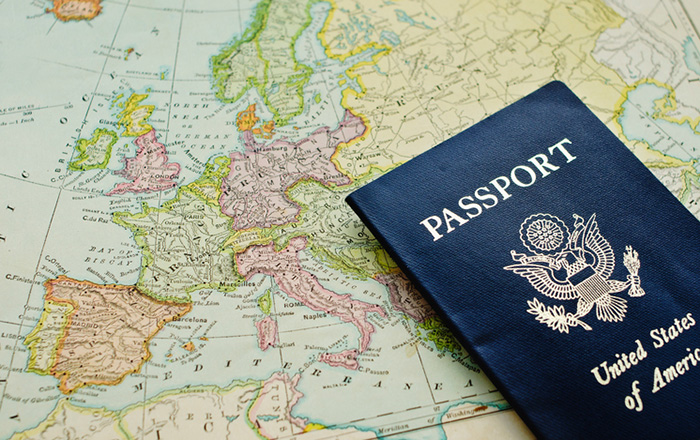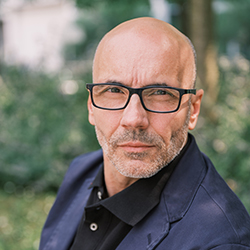New York Correspondences / Political and Geostrategic Observatory of the United States
13 February 2025
At JFK, Dual Nationals Are No Longer Quite Welcome.

The plane landed on the runway at JFK, concluding two weeks of promoting my book in Paris. Tired but satisfied, I was back in New York, not suspecting that coming home could now become a trial.
The first checkpoint went as usual. I slid my American passport under the automatic reader, smiled at the camera, and picked up the receipt that allowed me to continue on my way. At customs, however, something went awry. The officer examined my document, then looked up:
— Do you have another passport?
I frowned.
— I’m an American citizen, why would I need another passport?
He shrugged with that bureaucratic assurance that tolerates neither doubt nor discussion.
— You have dual nationality, right? You need to present your French passport as well.
I shook my head. No, that wasn’t true. It was illegal. On American soil, a citizen could only be treated as such, without distinction. Asking for my French passport was a challenge to that principle.
— I refuse, I replied. It was a matter of principle.
The man didn’t flinch. He simply raised his hand to call a colleague, who came to take his place at the counter. Two minutes later, I found myself escorted to an adjoining room, one of those sterile spaces where the reinforced plastic walls absorb all spontaneity.
After about ten minutes, a senior officer entered. The first customs officer was discreetly reprimanded. He had no right to ask for my French passport. But instead of stopping there, the situation took on a Kafkaesque turn. Rather than acknowledging the abuse and ending it, it was incorporated into the protocol, as though it had always been part of the rules. The mistake became a cog in the system. What should never have existed was now an unavoidable formality.
— To avoid any misunderstanding, we’re going to push the verification a bit further. Can you show us your French passport?
I knew it was absurd, that it didn’t hold water, that giving in meant accepting a drift. But what else could I do? Refuse and prolong a pointless confrontation that, in any case, wouldn’t change the underlying issue? Besides, the jet lag was starting to take its toll, adding to my weariness. I complied. They flipped through my passport as if the ultimate proof of my loyalty was hidden between two expired visas.
Then came the questions—worthy of the McCarthy era—“Why were you in France?” “What’s the subject of your book?” “Did you meet any political leaders?” (!!!). Again, the absurdity of the situation was clear for all to see. I knew it wasn’t me they were suspecting. It was a general climate of distrust that these officers were trying to impose, driven by more or less unconscious reflexes.
When I was finally “released,” my bag was waiting for me by the carousel. I crossed the airport, filled with a quiet anger.
Trump’s new America is eroding fundamental principles. There’s an open assault on judicial independence, mass firings to install a servile administration, an attempt to silence the checks and balances, and the beginning of controlling some of its citizens as if they were suspects. On the outside, the imperial machine has started up. On the inside, it’s clearly learning to sort through its own.
In the days that followed, I decided not to leave it at that. I spoke to a friend of mine, a specialized lawyer. He listened without surprise. Since Trump had returned to power two weeks earlier, and although of course this didn’t happen every time a dual-national entered the country, it wasn’t the first time he’d heard such a story. Officially, there was no directive, no written instruction. Yet, something was in the air: a diffuse pressure, a latent tension, as if, little by little, dual nationals were no longer quite considered real Americans. The rules still held, but already some were starting to ignore them.

